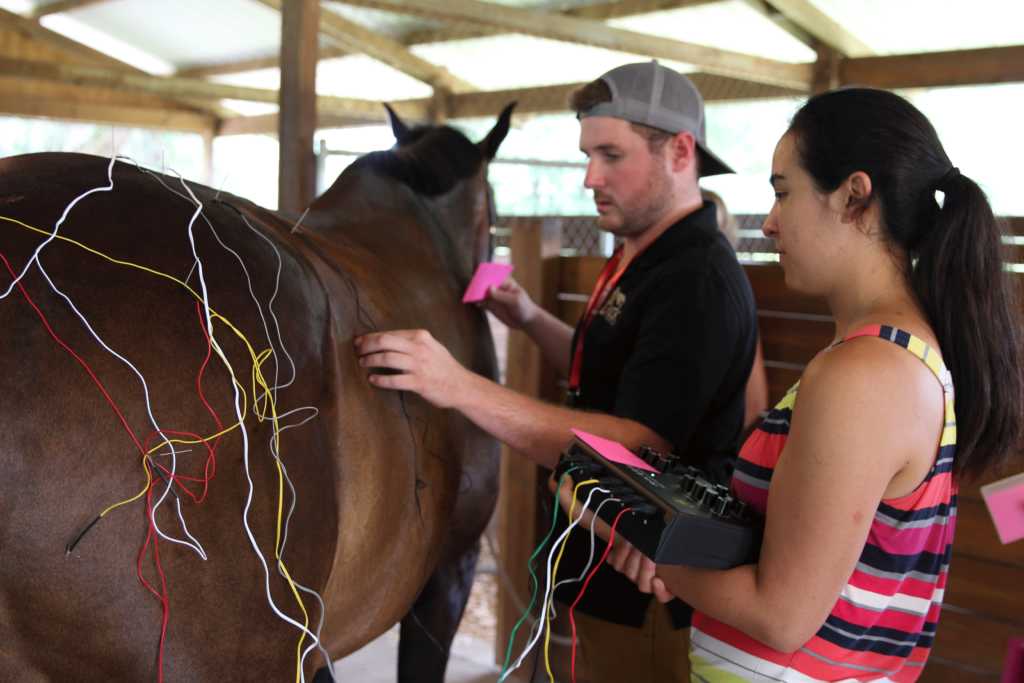Traditional Chinese veterinary medicine takes a holistic approach to treating horses.

An ancient practice, traditional Chinese veterinary medicine is about restoring balance.
“TCVM is an adaptation of traditional Chinese medicine. In Chinese medicine, disease is understood as an imbalance in the body,” says Dr. Lisa Trevisanello, teaching and academic advisor at Reddick-based Chi Institute of Traditional Chinese Veterinary Medicine. “Ancient practitioners believed that the body is an interconnected system of forces and functions. Disease is disharmony between those forces and functions. The goal is to bring balance back to the body through various modalities.”
The TCVM modalities include acupuncture, herbal medicine, food therapy and Tui-na.
“People tend to think of Chinese medicine as just acupuncture,” says Trevisanello. “But all four modalities are equally important. And depending on the horse’s particular issues, treatment if often a combination of modalities.”
Trevisanello notes that while TCVM is often thought of as complementary therapy, she sees a more integrative approach with Western veterinary medicine.
“Our modalities such as acupuncture and herbal medicine are a holistic approach to treating an animal. Western veterinary medicine is better suited to diagnose disease and address acute situations,” she says. “We feel that it’s best to integrate the two systems for the best possible results. Here at the Chi Institute, we work closely with Western veterinary medicine doctors.”
Here’s a look at the four branches of TCVM.
Acupuncture: “This modality is used for many equine issues, including chronic pain and musculoskeletal [issues],” says Trevisanello. “The treatment utilizes specialized needles to stimulate certain points along the body’s meridian channels along which Qi, life force, flows. It is a very popular and effective treatment.”
Herbal medicine: “One of the oldest forms of Chinese medicine, herbal medicine uses a combination of certain herbs. The formulas can include anywhere from two to 10 different herbs ground together,” says Trevisanello. “The powdered formula can then be easily added to a horse’s feed. Herbal medicine is used to treat many chronic issues, including digestive, skin and respiratory conditions.”
Food therapy: “In Chinese medicine, warming up or cooling down a body can bring it back to balance. This is the basis of food therapy as a TCVM modality,” says Trevisanello. “A specialized diet of certain grains or hays can be prescribed, as well as snacks like apples and watermelon rinds.”
Tui-na: “Pronounced Tee-na, this is a form of Chinese medical massage that incorporates acupressure and chiropractic techniques. It is used for musculoskeletal issues,” says Trevisanello. “Some horses are very sensitive and don’t tolerate acupuncture well, so Tui-na is another option. It can also be taught to a horse’s owner, and they can then treat their horse at home.”
Learn more › Chi Institute of Traditional Chinese Veterinary Medicine › 9650 W Hwy 318, Reddick › (352) 591-5385 › tcvm.com






